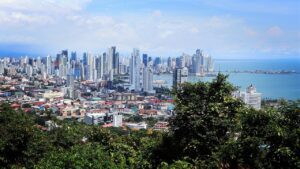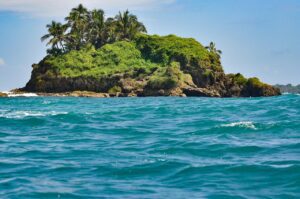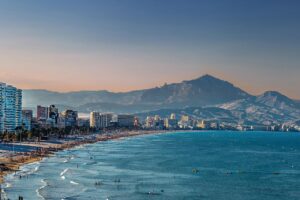
How Climate Change is Drowning Small Island Nations in 2025
The ocean doesn’t care about borders. It doesn’t care about politics. And right now, it’s swallowing entire countries whole. How Climate Change is Drowning Small Island. While the world argues over carbon emissions and green energy, small island nations are fighting for their literal survival.
Saltwater is slowly creeping into farmland. Families are left with nothing to eat or drink. It’s not just Kiribati – even in Bangladesh, coastal villages are being washed away. forcing thousands to move inland, into cities already full to the brim. Entire communities are vanishing under the waves, taking away years of history and culture, and traditions. Rising seas are more than a climate issue; How Climate Change is Drowning Small Island. they’re a human survival crisis. Read More....

1. Rising Seas – Not Just Water, But a Death Sentence.
Thi is not science fiction. that is the brutal reality for people in Kiribati, a small Pacific nation slowly drowning under rising sea levels.
When homes are lost, when soil turns poisonous, when freshwater disappears survival becomes a daily fight. the Children fall sick from dirty the water. parents struggle to find food. and elders watch their ancestral lands disappear. Small islands like Tuvalu, Kiribati, and the Marshall Islands are losing land faster than maps can be updated.
- Tuvalus highest point. it is just 4.6 meters above sea level. By the year 2025, saltwater intrusion has poisoned 40% of its freshwater supply.
- Kiribati has already purchased land in Fiji. not for investment, but as a future refugee settlement for its own people.
In Fongafale, Tuvalu, families now wade through knee-high water at high tide. Kids play in flooded schoolyards. Graves are being washed into the sea. This is not a disaster movie. it is the daily life.
2. Islands as Punching Bags.
Pic Of the Caribbean palm and turquoise the waters bright suns hine. But behind the postcard beauty lies a nightmare stronger, faster, deadlier storms smashing these islands year after year. Take Dominica.
In 2017, Hurricane Maria tore through the tiny nation, flattening homes, ripping up roads, leaving nearly every resident homeless overnight. How Climate Change is Drowning Small Island. . How Climate Change is Drowning Small Island. Crops were destroyed. and power vanished and hospitals overflowed. and with the injured survivors. Read More..
These storms are no longer rare freak events they’re coming faster, packed with more power, made worse by driven by warmer oceans and shifting weather patterns. For small islands, it’s like standing in a boxing ring, absorbing hit after hit, barely able to stand.
Their economies, often based on fishing or tourism, can’t recover before the next disaster strikes. Families live in constant fear, rebuilding again and again. And while wealthy nations debate carbon cuts, these islands endure the front-line damage. Warmer oceans mean hurricanes and cyclones hit harder and more frequently.
- Hurricane Pam wiped out 90% of Vanuatu’s infrastructure.
- In 2024, Cyclone Judy forced the entire population of Solomon Islands to evacuate.

3. Coral Bleaching – Starving Nations.
Beneath the waves – coral reefs blaze with life. they are used to Today. rising ocean temperatures are turning these once-colorful ecosystems into pale, lifeless skeletons. In the Maldives, entire reef systems have bleached, wiping out the fish that countless families rely on for both food and income. Fisher man come back empty handed. to markets sit bare and local restaurants. struggle without fresh catch.
Tour guides watch visitors vanish as the reefs fade, choking off a vital tourism lifeline. But it’s not just about beauty or business coral reefs are natural barriers, protecting coastal villages from pounding waves and storms. Read More...
Without them, shorelines crumble, homes are swallowed, and families are forced to leave. These losses ripple outward fewer fish means less trade, fewer jobs, rising poverty. All because overheated waters force corals to expel the algae that keep them alive. How Climate Change is Drowning Small Island. For nations depending on the sea, coral bleaching isn’t distant science; it’s a hunger creeping in day by day. pulling communities to the edge. Coral reefs aren’t just pretty they’re food security for millions.
- Palau is reefs are dying. at the 3x the predicted rate.
- Fiji’s fishing yields have dropped 50% in a decade as fish habitats collapse.
4. Climate Refugees -The World Stateless People.
If Imagine The waking up one day. and find your country disappearing under water. That’s the reality for people in Tuvalu, a tiny Pacific island nation swallowed bit by bit by rising seas. Families watch helplessly as saltwater floods gardens, poisons wells, and eats away at homes passed down through generations. With no high ground to escape to. they are face the unthinkable leaving the forever.
In Bangladesh, villagers in the Sundarbans lose land to storm surges and eroding riverbanks, forced to migrate to crowded slums where jobs are scarce and life is brutal. These are not people chasing wealth or adventure; they’re running to survive. in the Marshall Islands, young parents fear their children won’t have a homeland by the time they’re grown. Unlike war refugees, climate migrants have no clear protections, no legal human rights or recognized place. Read More...
Where do you go when your country no longer exists? Who takes you in? Wealthy nations, responsible for much of the planet’s warming, shut borders or argue over numbers, while entire communities drift toward statelessness. These are people do not ask to become bedouin. but the world’s changing climate is pushing.
- The united nations predicts 200 million peopels climate refugees by 2050.
- Kiribati’s “Migration with Dignity” program trains citizens for jobs abroad—because their homeland won’t exist soon.

5. Who’s Fighting Back – And Who’s Just Watching?
Take Costa Rica this small Central American country runs almost entirely on clean, nature-friendly power, proving action speaks louder than promises. Tiny island nations like the Maldives build sea walls and push for global climate agreements, despite having little money or power. They are fight because his their survival hangs in the balance.
Meanwhile, young activists like Vanessa Nakate in Uganda stand on the front lines, demanding justice for communities already feeling climate’s sting. Small Island Nations in 2025. Indigenous groups from the Amazon to the Arctic defend forests and rivers, not just for themselves but for the planet as a whole. Movie..
And yet, many wealthy nations watch from the sidelines, stuck in endless debates, making vague pledges while emissions rise. Big corporations endlessly putting out. How Climate Change is Drowning Small Island. shiny company promotions about “real earth saving promises” but keep drilling, mining, polluting. Their empty words fall hard on those facing floods, droughts, and fires today.
The fight against climate disaster or climate breakdown and just about science or policy, it is about courage, fairness, and responsibility. While be battle with everything they Have got, others stand back, comfortable and detached, watching a crisis they helped create unfold before their eyes.
- Tuvalu is going digital. creating an virtual nation. and if the physical one drowns.
- Vanuatu is suing fossil fuel companies for damages.
- Rich nations debate. “loss and damage” funds. while the approving new oil projects.









Leave a Reply